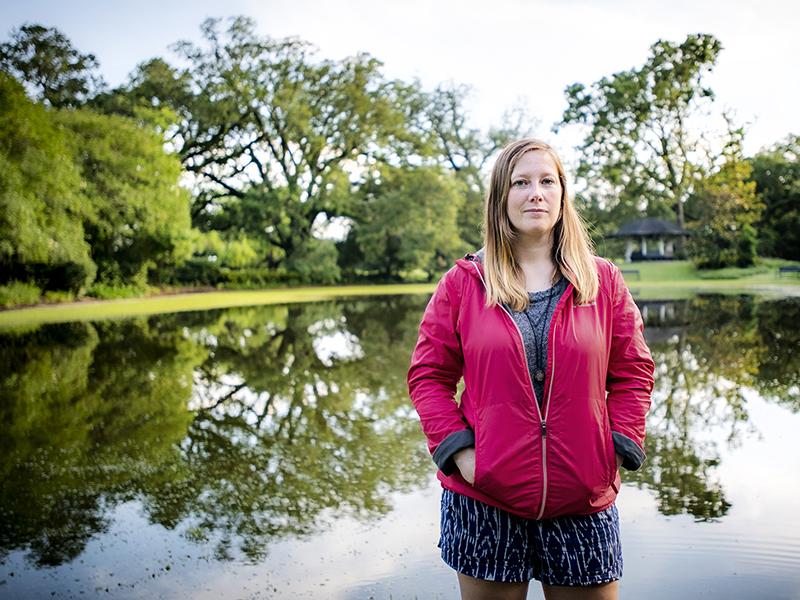PhD candidate motivated by a sense of responsibility to the natural world
The pursuit of a doctoral degree is academically rigorous and requires dedication and focus, but for Laura Scott, who is graduating this spring with a PhD in Environmental Health Sciences from the School of Public Health and Tropical Medicine, the resolve required to achieve her goals went well beyond the norm.
For her Master of Science thesis project, Scott traveled to 13 different national parks to study antibiotic resistant bacteria in the soil and water. Her preliminary data was so compelling that she decided to delve deeper and focused her doctoral research on a single national park, Rocky Mountain National Park in Colorado, and the impact that visitors have on the incidence of resistant bacteria. In order to collect samples, Scott had to visit the most isolated locations in the wilderness, miles from a trail.
“To get this PhD I really had to go through the wringer. I was oftentimes by myself in these really remote locations, and that got dangerous and dicey on a lot of occasions. Quite literally, my life was on the line to collect this data,” recalled Scott.
Scott, who grew up in Oklahoma and is a Citizen Potawatomi Nation member, embraced her connection with and love of nature from an early age, and this embedded in her a sense of responsibility to the natural world. This commitment to the well-being of all inhabitants of the planet was also demonstrated in her work with Tiong Gim Aw, a School of Public Health faculty member, on environmental surveillance of wastewater to detect COVID-19 during the onset of the pandemic. Scott’s intention is not solely to find answers to pressing questions, but also to raise awareness.
“My work in the national parks illuminates the effect that our species has on the world around us. This pandemic is caused by human environmental intermesh. The antibiotic resistance is just another facet of that picture, and the data points to the conclusion that this is caused by people. We are affecting the environment around us, and we as a people need to be a lot more aware of this resource and treat it better.”


